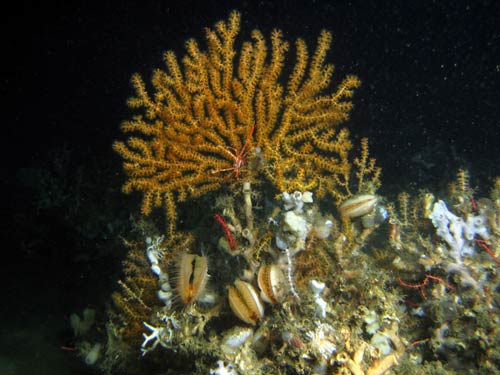
Rare Cold Water Coral Discovered in Northern Africa

Get the world’s most fascinating discoveries delivered straight to your inbox.
You are now subscribed
Your newsletter sign-up was successful
Want to add more newsletters?

Delivered Daily
Daily Newsletter
Sign up for the latest discoveries, groundbreaking research and fascinating breakthroughs that impact you and the wider world direct to your inbox.

Once a week
Life's Little Mysteries
Feed your curiosity with an exclusive mystery every week, solved with science and delivered direct to your inbox before it's seen anywhere else.

Once a week
How It Works
Sign up to our free science & technology newsletter for your weekly fix of fascinating articles, quick quizzes, amazing images, and more

Delivered daily
Space.com Newsletter
Breaking space news, the latest updates on rocket launches, skywatching events and more!

Once a month
Watch This Space
Sign up to our monthly entertainment newsletter to keep up with all our coverage of the latest sci-fi and space movies, tv shows, games and books.

Once a week
Night Sky This Week
Discover this week's must-see night sky events, moon phases, and stunning astrophotos. Sign up for our skywatching newsletter and explore the universe with us!
Join the club
Get full access to premium articles, exclusive features and a growing list of member rewards.
A rare cold water coral reef has been discovered off the coast of Mauritania in Northern Africa, the first time such a reef has been found this far south, according to a new report.
In the middle of an enormous rock formation in an undersea canyon, scientists have found a thriving coral ecosystem in deep cold water. This coral wall on the continental shelf off the coast of Mauritania measures about 164 to 197 feet (50 to 60 meters) high and is 118 miles (190 kilometers) long. Cold water coral ecosystems were known to form much further north, around Scandinavia and in the Irish Sea, but this is the furthest south they have been found.
Researchers lowered a robot to the seafloor, 2,000 feet (615 m) underwater. There they discovered a flourishing coral ecosystem. The researchers spotted spectacular animals including a heavily calcified Lophelia coral with orange-red polyps, and gorgonias coral, a common reef building coral in the tropics. Giant clams were hanging on the coral, similar to Norwegian reefs, according to the expedition report.
Unlike tropical corals, cold water corals live at 55 degrees Fahrenheit (13 degrees Celsius) in the dark and nutrient-rich deep sea region below 650 feet (200 m). The study team knew of a loose cold water coral reef which extends to southern regions, said André Freiwald, a team member from University of Gothenburg in Sweden. Until now, however, scientists had only found fossil coral reef structures on the seafloor off the coast of Gibraltar and Morocco.
Near Mauritania the scientists found the powerful carrier crab Paromola and the giant deep sea oyster Neopycnodonte, also never before observed so far south. These giant oysters form thick populations and can be described as Methuselahs among animals, with some individuals living for over 500 years.
The surprising discovery of cold water coral ecosystems may be due to offshore winds pushing the surface waters from the Mauritanian cliffs out into the open ocean. This would create a flow of cold and nutrient-rich water to the coral ecosystems, Freiwald said.
The Maria S. Merian will stop at and chart further parts of the coral system in the canyon of the continental shelf off the coast of Mauritania. The current research voyage ends Nov. 20.
Get the world’s most fascinating discoveries delivered straight to your inbox.
Freiwald expects the next dives on this expedition to provide information as to whether the newly discovered ecosystem represents a single structure or whether a spatially extended living reef province exists in the southern waters.
- Plumbing the Depths of Gulf Oil Spill for Coral Killers
- Gallery: Creatures of the Frozen Deep — Antarctica's Sea Life
- Gallery: Expedition to the Fossilized Ancestor of the Great Barrier Reef
This article was provided by OurAmazingPlanet, a sister site to LiveScience.
 Live Science Plus
Live Science Plus











